Monthly Journal
April 2023
International Press Review
The most relevant events of the area through international sources
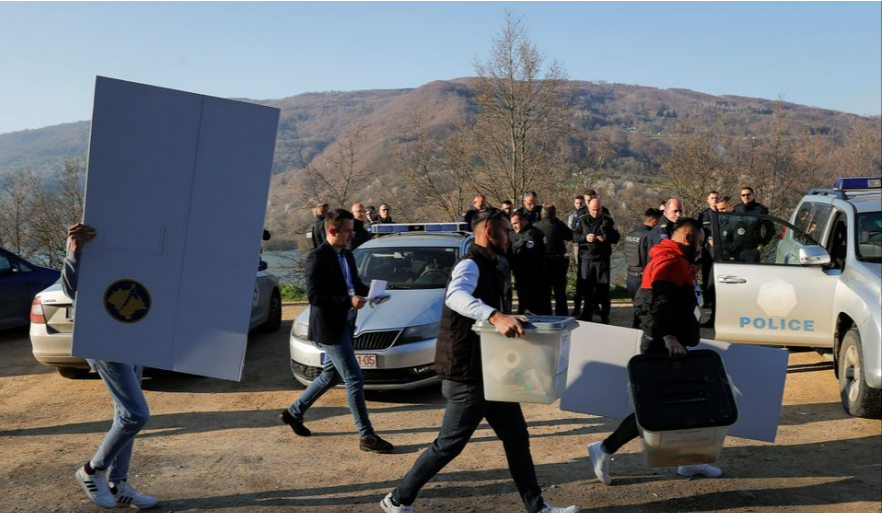
Kosovo Serbs boycott elections in the north
Voice of America
Kosovo’s ethnic Serb minority, backed by Belgrade, boycotted local elections in the north of Kosovo, leading to one of the lowest turnouts ever registered at a vote in Europe. An estimated 120.000 Serbs live in Kosovo, many in the four northern districts where the local polls were held, but only 13 of them turned out at the polls, according to Belgrade. The boycott could worsen tensions between the government in Kosovo and the Serb community, which has never accepted Kosovo’s declaration of independence from Serbia in 2008 and will now have ethnic Albanian local administrators. The elections were held after all Serbian mayors in the north quit their posts last year.
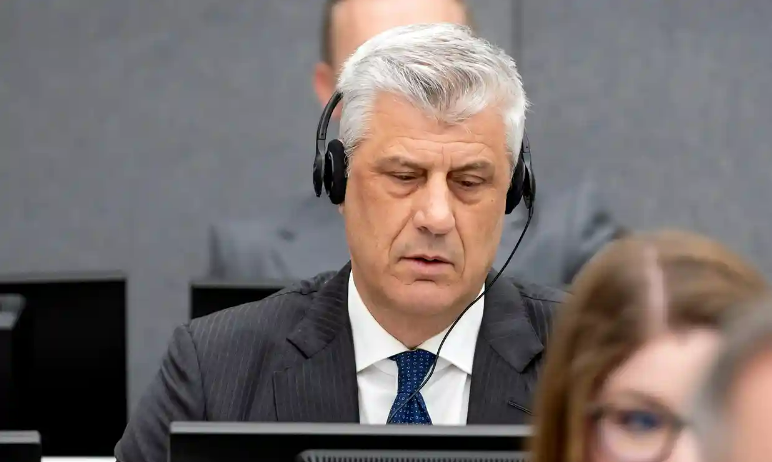
Former Kosovo’s President Thaci on trial for war crimes
France 24
The trial of former Kosovo President Hashim Thaci, a key-figure in the politics in the Balkans, and of three other ex-Kosovo Liberation Army (KLA-UCK) leaders has started at The Hague’s Kosovo Specialist Chambers. They are accused of crimes against humanity and war crimes committed against Serbian civilians and Albanians considered collaborators during the 1998-1999 conflict. Thaci, alias “Snake” when UKC commander, was president of Kosovo from 2016 until his indictment in 2020, and he pleaded not guilty to all ten counts. The ten-count indictment charges Thaci, together with Kadri Veseli (alias “Flower”, when heading the UKC counterintelligence), Jakup Krasniqi and Rexep Selimi, of being a part of a joint criminal enterprise.
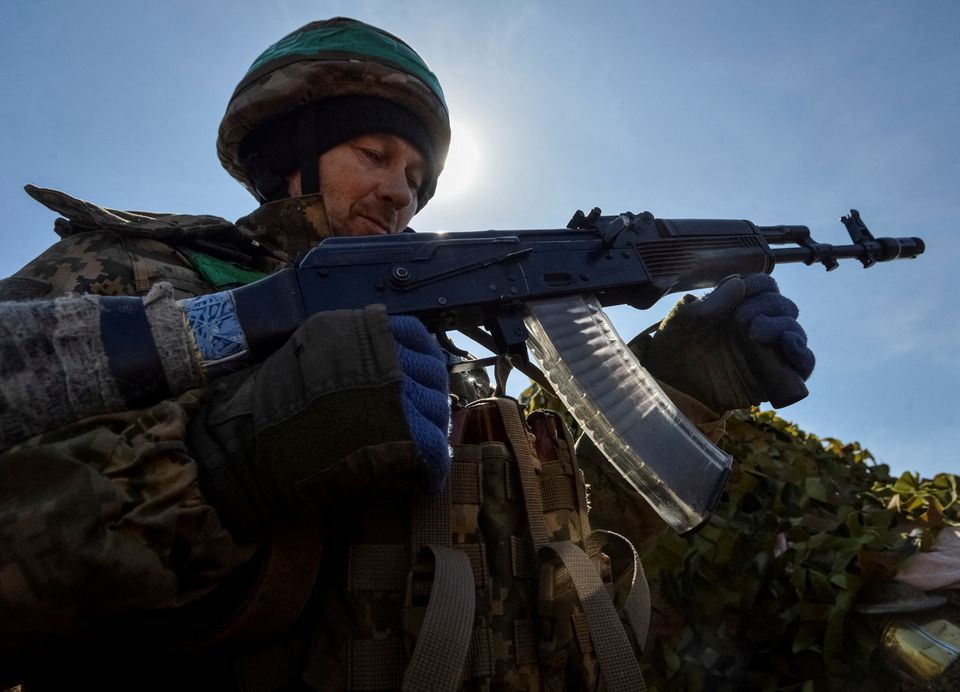
Leaked US documents suggest Serbia agreed to arm Ukraine
Reuters
According to a classified Pentagon document leaked online, Serbia could have secretly agreed to supply or has already sent arms to Ukraine, despite its neutral stance in the conflict and refusal to sanction Russia over its invasion in 2022. The leaked document summarises European governments’ responses to Ukraine’s requests for military aid and training and is marked as secret and not available. Serbia’s Defense Minister and Belgrade’s President Vucic denied the document’s claims, stating that Serbia did not and would not sell weapons to either side of the conflict. The authenticity of the document could not be independently verified by international media.
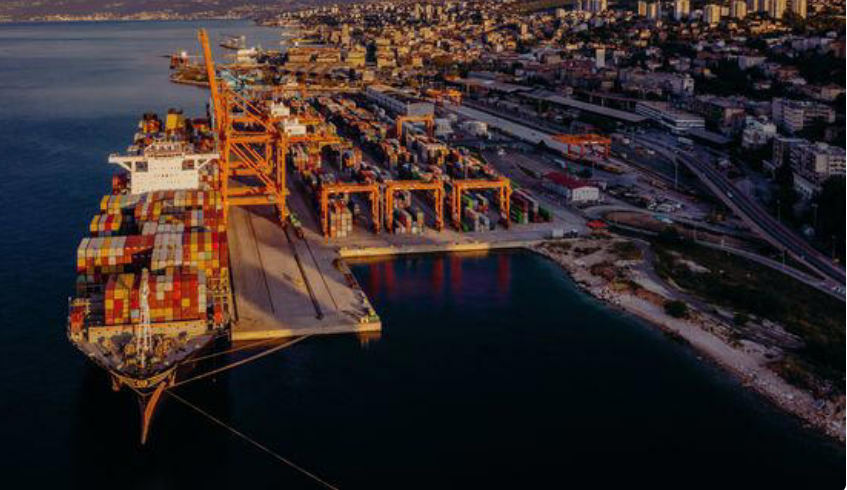
US campaigned in Croatia against Chinese investment on key harbour
The Wall Street Journal
The US successfully blocked a deal that would have allowed three Chinese state-owned firms to operate a container terminal in Croatia for 50 years, following an intense behind-the-scenes lobbying campaign. The move reflects a wider strategy to counter Beijing in Europe, particularly in relation to investment in key infrastructure, such as ports and railways, energy grids and semiconductor plants. The port in Rijeka is used by NATO to move military equipment in and out of Europe and by the US Navy for ship maintenance and repair.
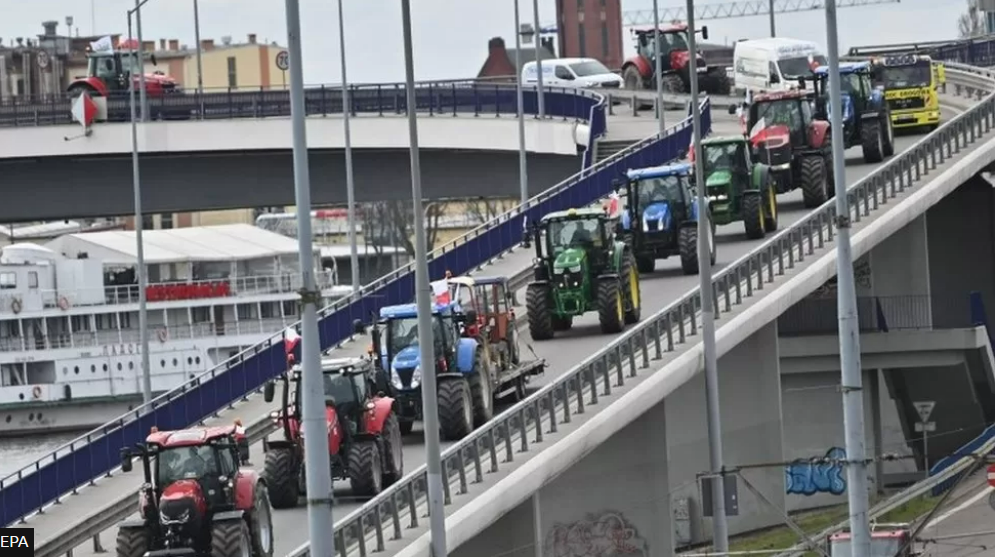
The flash ban on Ukraine’s grain transit
Euronews
Poland and Romania have introduced and short after lifted a ban on Ukrainian food products until the European Commission makes a decision on the matter. This decision came after Kyiv agreed to implement additional security measures for the transportation of agricultural products. Five Central European countries (Poland, Hungary, Slovakia, Romania, and Bulgaria) introduced import bans from Ukraine to protect their farmers in April. The farming sector in several Eastern European countries has been affected by excess Ukrainian agricultural imports that have lowered prices for local producers.
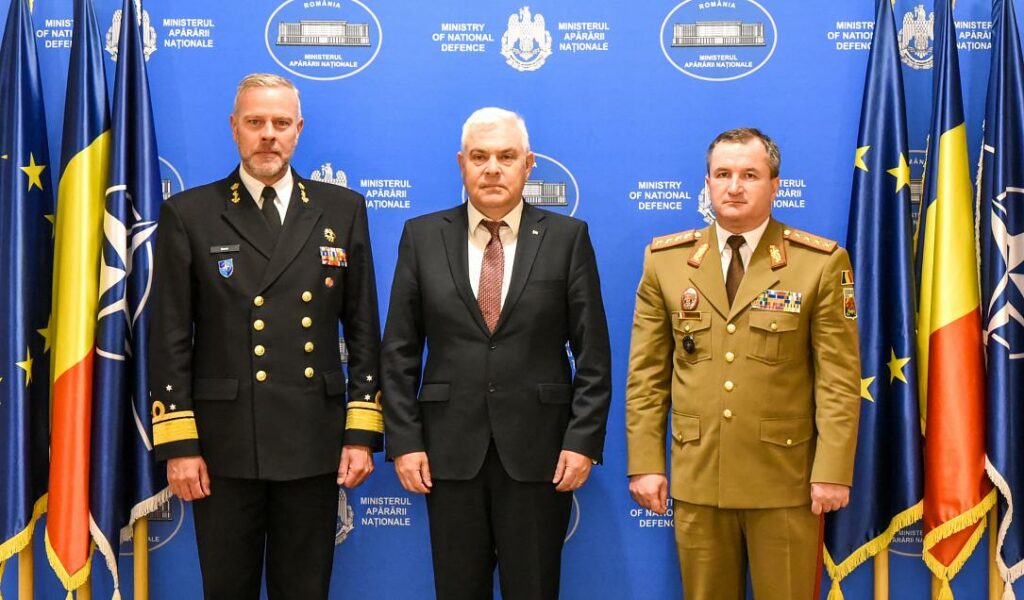
NATO’s chair of Military Committee warns about future Russian moves
Romania Insider
During a visit to Bucharest, the Chair of the NATO Military Committee, Rob Bauer, stated that Russia is to blame for the extremely tense relations that currently exist between it and NATO. Furthermore, he claimed that Moscow wants a return to the borders of 1997. Bauer warned that Russia’s plan is to regain the borders of the former Russian Empire, as shown by the text of a treaty text they sent to NATO in December 2021. Furthermore, Russians want to have a buffer zone around Russia again, which includes Romania, indicating that their approach is not only focused on Ukraine.
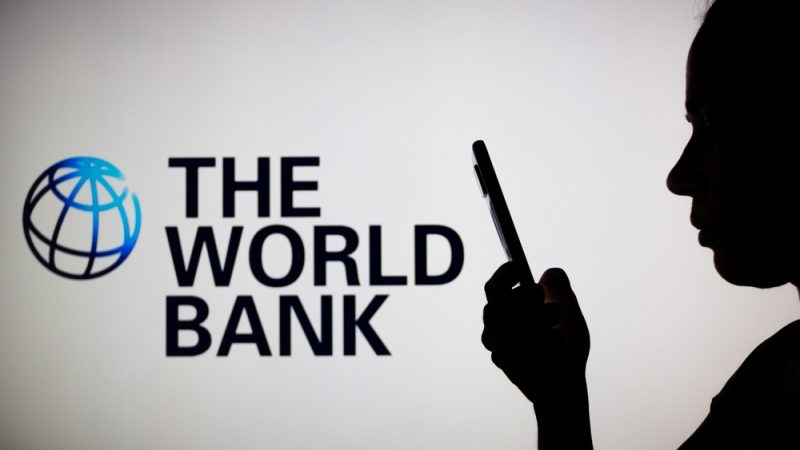
Almost one billion from World Bank to Albania to stop brain drain
Euractiv
The World Bank has pledged to provide 900 million euros to Albania to invest in projects aimed at creating jobs, improving human capital and building resistance to crises over the next four to five years. The funding will be divided into three pillars: creating more and better jobs; strengthening human capital by improving education, health, and social protection; and building resistance to crises. Specific projects will include increasing fiscal resistance and agriculture’s resistance to climate change. Albania, together with other Balkan countries, has been suffering from massive emigration for decades. Employers in the region are now struggling to hire skilled staff in the hospitality, tourism and manufacturing industries, forcing them to bring in employees from Asia and Africa.
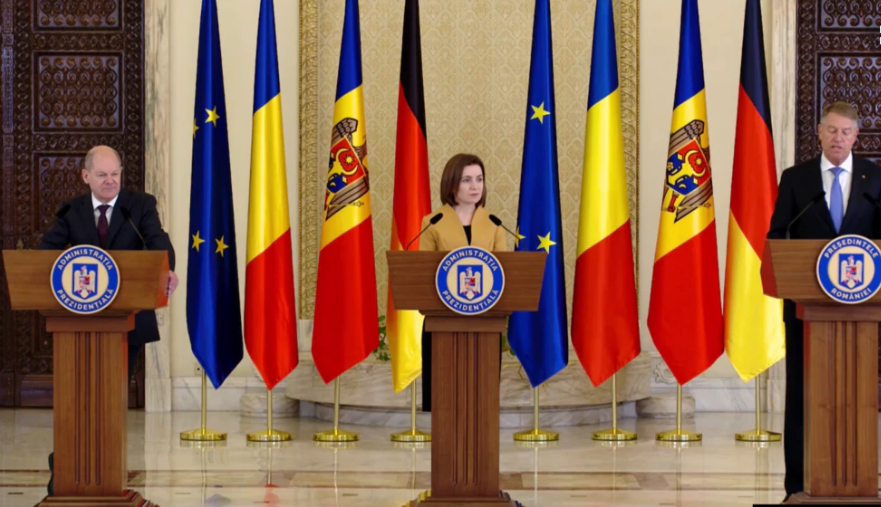
Ukraine, Moldova and Romania strengthen ties, Germany supports Bucharest
Radio Free Europe
German Chancellor Olaf Scholz visited Romania to show support for the NATO ally and pledge to continue supporting Ukraine against Russia’s invasion. He also met with Moldovan President Maia Sandu in the Romanian capital. Meanwhile, Romania, Ukraine, and Moldova signed cooperation agreements to strengthen security in the Black Sea region and counter threats posed by Russian aggression. Romania’s Foreign Minister called Russia “the most direct and serious threat” to the Black Sea region and the Western alliance.
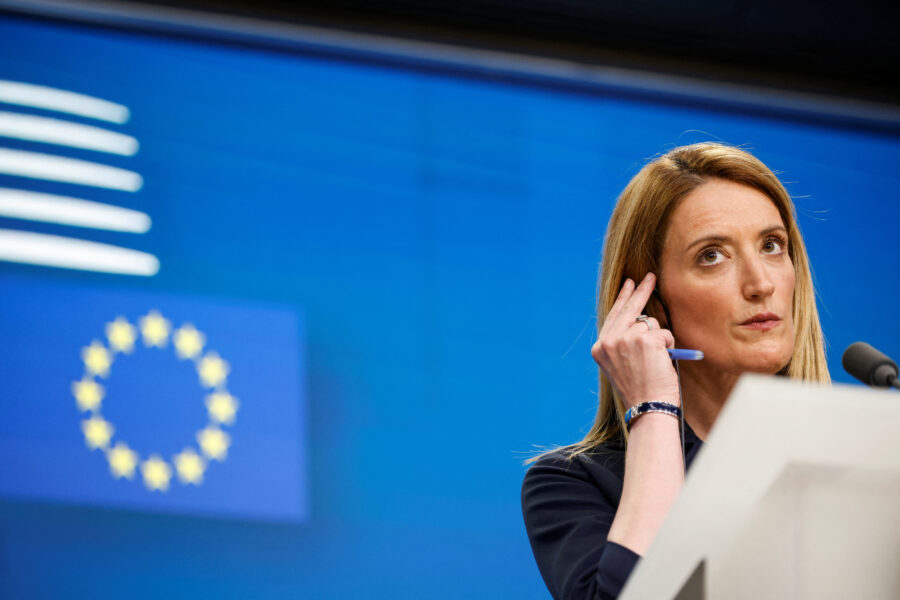
Visa regime for Kosovar citizens abolished
N1
Kosovo has been granted final approval for visa liberalisation by the European Parliament, which will allow its passport holders to travel to the EU without a visa for a maximum of 90 days in any 180-day period, starting in 2024. European Parliament President Roberta Metsola stated that this achievement brings key benefits to citizens in Kosovo and strengthens the EU’s relations with Kosovo. Kosovo has fulfilled all benchmarks and has continuously shown its commitment to the process. With this development, all Western Balkan partners will have visa-free access to the EU. Only Serbs from Kosovo that still use Serbian passport issued by Belgrade and not the official Kosovan travel documents will not enjoy the visa free regime.
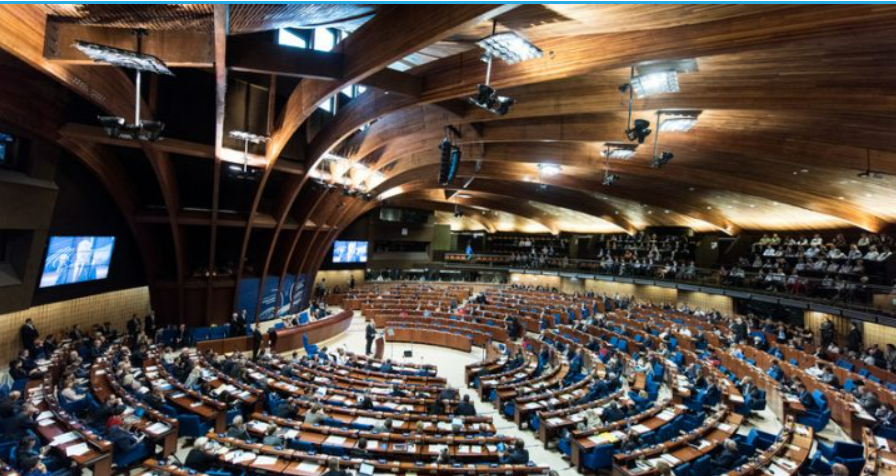
Pristina a step closer to Council of Europe’s membership
Pristhina Insight
The Council of Europe’s (COE) Ministerial Committee, representing 46 COE’s member states, has agreed to consider Kosovo’s request for membership. This follows Kosovo’s application in May 2022, and marks an important stage towards Pristina’s full membership. The application will now be assessed by the Committee of Ministers and then by the Parliamentary Assembly. Serbia has expressed opposition to Kosovo’s membership, but with two-thirds of the votes in favour, Kosovo has taken a significant step towards becoming a member of the Council of Europe. Kosovo is currently the only European country not part of the oldest and leading human rights organisation for the protection of human rights in Europe.
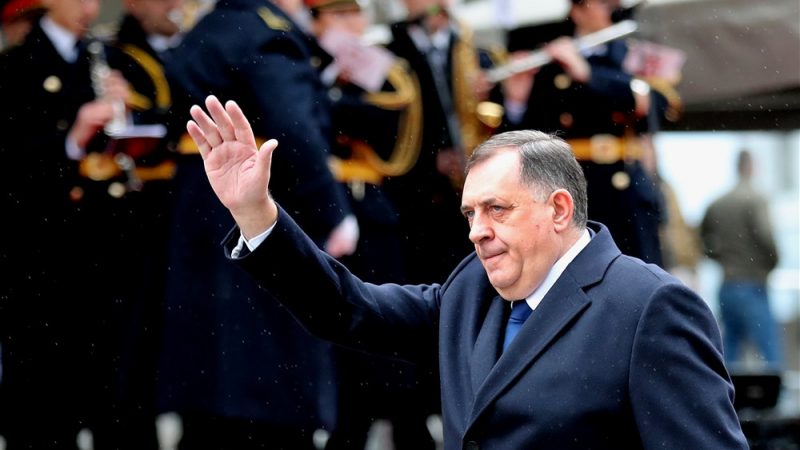
Bosnian Serb leader Dodik evokes secession again
Euractiv
Nationalist and pro-Russia Bosnian Serb leader Milorad Dodik has suggested again the idea of merging the Serb political entity in Bosnia, Republika Srpska, with neighbouring Serbia, taking his separatist rhetoric to new heights. Bosnia and Herzegovina is made of two highly autonomous entities created after the 1992-95 conflict, the one being settled in majority by Serbs and the other by Bosniaks and Croats. Dodik, speaking at a commemoration held at a World War II concentration camp site, said that “it’s no threat to anyone if RS expresses its will, the popular will, to form its own country,” adding that RS should be united with Serbia in the future.
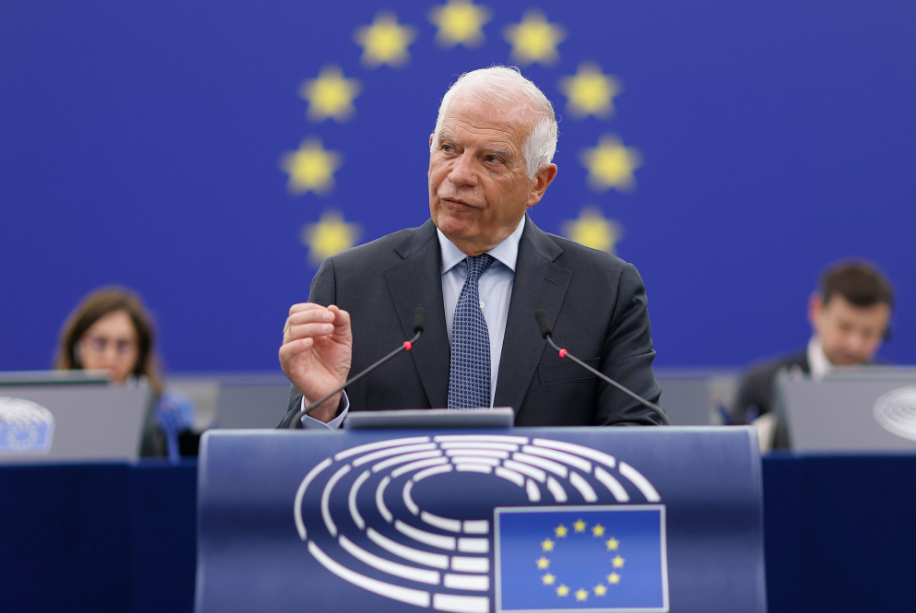
EU sends civilian mission to Moldova
France Press
European Union countries have agreed to send a civilian mission to Moldova to help the country cope with Russian interferences. The mission, consisting of around 40 experts, will include cyber and crisis experts and will be deployed to Moldova by May, for two years. Moldova, a pro-European country bordering Ukraine, has accused Russia of trying to topple its government through anti-government protesters, an allegation that Russia has denied. The EU’s deployment of the mission is a political sign of support for Moldova in the current difficult circumstances, said EU foreign policy chief Josep Borrell.
The Insight Angle

Daliborka Uljarevic
Political analyst and Executive Director of the Centre for Civic Education (CCE), one of Montenegro’s most prominent think tanks. Her areas of expertise include political systems, EU affairs, media policies, human rights, and civil society. She has previously worked with the Council of Europe, the OSCE, IFES, and BBC World, and also served in the Western Balkans Advisory Committee of the global Open Society Foundation (OSF). She is presently a member of the Regional Council of Reconciliation Network within the RECOM Initiative.
How significant is Milo Djukanovic’s defeat in the recent presidential elections and his resignation as DPS head? Can we really talk about the end of an era?
Indeed, Djukanovic’s defeat at the presidential elections and accompanying resignation from the position of the party leader mark the end of an era in Montenegro, but more in a symbolic than substantial manner, as all challenges remain due to the continuing lack of quality of political elites, and nowadays even lack of resilience of the new decision-makers to malignant influences.
Djukanovic’s legacy is dual, with positive aspects linked to his pro-Western course, from the period of distancing from Milosevic and being an important support to the West and Serbian opposition in the fight against Milosevic, through sheltering Albanian refugees in 1999 from the Serbian military and paramilitary forces, to restoring the statehood of Montenegro, opening the EU integration process and getting NATO membership.
However, his ruling is also marked by the kleptocratic approach, along with the development of endemic corruption, organized crime that deeply penetrated institutions, and nepotistic-clientelist ties that limited the necessary professionalization of public administration.
What do you think of the new president in Montenegro, Jakov Milatovic, and what to expect from the forthcoming parliamentary elections? And do you believe Milatovic is the right person to help stabilize the nation and build stronger, more stable, and equal relations with neighbouring countries like Kosovo and Serbia?
Milatovic comes from a right-wing populist party, and he is strongly backed by the Serbian Orthodox Church. On that wave, his party – the Europe Now movement – will undoubtedly emerge as the single strongest or one of the strongest parties after the extraordinary parliamentary elections in June 2023.
His stance on some of the important issues is unclear or far too aligned with political aims of Serbian President Vucic, which is raising questions about his ability to stabilize the nation and maintain/build relations with neighbouring countries, especially as he seems to underestimate the sources, complexity and depth of the polarization in Montenegro.
Do you believe the EU admission process, which has been effectively stalled in recent years also due to various political crises, will resume and proceed quickly enough? And how important is it for Montenegro to join the EU in a foreseeable future?
Accession to the EU is of key importance for the democratization of Montenegro, but it has been stalled due to the lack of effective political will and long-lasting political crisis. We have 11 years of lost chances behind us and the common denominator of all our politicians during that period, regardless of which spectrum they come from, is that, when faced with possibility for loosing monopolies of power in application of EU benchmarks, they choose to retain power to the detriment of our EU path. Simply, our politicians see the rule of law as the right to rule over the law, and that is far away from the EU standards and best practices.
What about Russia’s impact in the region? Do you believe Montenegro, a NATO member and EU candidate, is ultimately safe from external destabilization attempts?
Russia’s influence in the region is growing, while Western partners are losing leverage, and this is posing challenges to Montenegro’s stability. Hence, Western partners need to pay more profound attention to support democratic consolidation of the country.
Russian influence in Montenegro is primarily mainstreamed through certain media that unhinderedly spread Russian propaganda, political groups that do not hide their attachment to Russia, but the most powerful mechanism is the Serbian Orthodox Church.
The Key Story
Strategic trends
Djukanovic’s era ends in Montenegro
after debacle at presidential elections
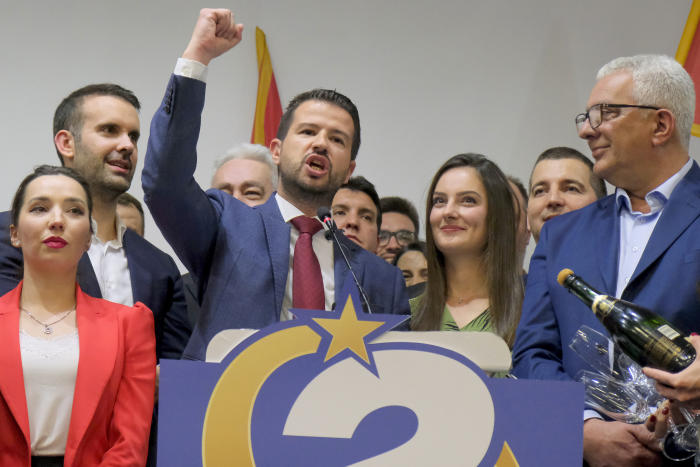
Montenegro’s President, Milo Djukanovic has been defeated in the April presidential election run-off in the NATO-member country. He had been in power for 32 years since being first appointed Prime Minister in February 1991, making him the longest-serving leader in Europe. Djukanovic lost by a large margin to Jakov Milatovic, a 36-year-old political newcomer and candidate for the Europe Now party. In the second round, Milatovic won with around 60% of the votes.
Milatovic, an economist and pro-European politician who was a former Minister of Economic Development, pledged to tackle corruption, improve living standards, and enhance ties with the European Union and neighbouring Serbia. He received support from parties close to Serbia, Russia, and the Orthodox Church, including the ruling pro-Serbian Democratic Front candidate Andrija Mandic and outgoing Prime Minister Dritan Abazovic.
Djukanovic and his DPS party had dominated Montenegro for almost three decades but began to lose their grip on power in the August 2020 parliamentary elections to a coalition of three former opposition blocs. The political fall of the DPS continued in the local elections last October when they lost control of 10 out of 14 municipalities. Snap parliamentary elections are now scheduled to take place in the summer, and the DPS might suffer another defeat. Following his defeat, Djukanovic resigned also as the leader of the DPS ahead of the party congress.
Djukanovic’s rise to power began through the so-called anti-bureaucratic revolution in Yugoslavia. He became the Prime Minister of Montenegro for the first time in 1991, shortly before four of the Yugoslav republics declared their independence. During his three-decade rule, Djukanovic transformed himself from a devoted socialist and one of the closest allies of former Yugoslav President Slobodan Milosevic into the man who led Montenegro towards independence, closer to the EU and into NATO. He cemented his power through the DPS’s control over state institutions, ensuring that the party remained in power. Critics accused him for autocratic ruling, corruption, and links to organized crime – allegations that he always strongly denied.
Milatovic, seen by his critics in the region as a pro-Serbian politician, promised to lead his small Balkan nation into the European Union within the next five years, fight corruption and push for reforms that will foster rule of law and economic development to bring prosperity to the country, stop emigration and brain drain. After finishing his economics studies at the University of Podgorica, Milatovic spent one year as a scholar at Illinois State University in the United States and then studied in Vienna and Rome. He went on to earn a Master’s degree in Economics at Oxford. He worked also at Deutsche Bank before joining the European Bank for Reconstruction and Development (EBRD). He has consistently argued for closer relations with Serbia, but he immediately stated after being elected that Srebrenica was a genocide and that Kosovo is an independent country, provoking rage among Serbian nationalists in the region.
Although the presidency in Montenegro is mostly ceremonial, Milatovic, a newcomer with an ambitious program has the potential to usher in a new era in the country’s political history and in the Balkans more broadly.
Further News and Views
Conservative GERB-UDF coalition wins another unconclusive elections in Bulgaria
Sources: Balkan Insight, Euractiv, Voice of America, Politico
Bulgaria’s centre-right GERB-UDF coalition has won the election in Sofia but without an overall majority, prolonging the country’s political instability. April’s vote in Bulgaria could be the fifth inconclusive election in the EU member country in two years. GERB’s leader, former prime minister Boyko Borisov, has urged parties to put a new government in place “whatever the cost.” The pro-Western reformist party PP came second and GERB faces distrust from PP and its ally Democratic Bulgaria, a scenario that suggests the impossibility to form a majority. Borisov has offered to lead talks with all parties to form a new government. The current caretaker government has already had to delay Bulgaria’s adoption of the EU’s euro currency and the impasse may lead to further delays.
North Macedonia and Bulgaria continue fighting on constitutional changes
Sources: Novinite, Balkans Insight, Euractiv
North Macedonia has condemned a Bulgarian request to be “included” and “consulted” in the process of adding Bulgarians in North Macedonia’s constitution, calling it “scandalous”. The request comes ahead of an important constitutional change in North Macedonia, which would name Bulgarians as one of the constitutive people of the country and prevent repeated Bulgarian blockades of the country’s EU integration process. Bulgaria has historically disputed the Macedonian identity and language, claiming they are of Bulgarian origin, which North Macedonia rejects.
EU - NATO
Bosnian Presidency member asks NATO to speed up membership
Sources: N1, Just Security, TASS
Denis Becirovic, the Bosnjak member of the Bosnia’s tripartite Presidency, has urged the West to support the fast-track accession of Bosnia and Herzegovina to NATO. He highlighted that Bosnia, like Finland, is also on the geopolitical frontlines and a NATO fast track membership of Bosnia and Herzegovina would secure the stability of the Western Balkans. The support of the United States would be crucial in achieving this goal, he added. Becirovic said he hoped that the first steps towards this goal will be taken at the NATO Summit in Lithuania later this year. He warned of Russian influence in Bosnia and Herzegovina.
However, the President of Republika Srpska, Milorad Dodik, said that Bosnia and Herzegovina will not even consider joining NATO due to Bosnian Serb opposition. Dodik emphasized that Republika Srpska must avoid the political games of leaders whose only intention is to fulfill the wishes of “Islamic Sarajevo” and worsen the situation for Republika Srpska. He noted that the same thing is happening with Bosnia’s NATO membership, which is why Republika Srpska adheres to neutrality.
ECONOMICS
Economic and security risks arising from gas projects in the Balkans
Sources: Global Energy Monitor, Euractiv
According to a research paper by Global Energy Monitor and Bankwatch, EU- and US- backed plans to push for a 3,5 billion-euro-spending on gas-fired power plants, pipelines and liquefied natural gas terminals in the Western Balkans pose economic and security risks to the region and contradict the provisions of the Energy Community Treaty and the EU’s green energy efforts. The region, which has a significant potential in solar and wind energy, currently relies on hydropower and coal, and introducing gas infrastructure would undermine the transition to clean, affordable energy, the study claimed. Furthermore, gas infrastructure plans would expose the region to volatile price swings and gas shortages, and building new gas-fired power plants and gas networks would be a step backwards as the countries of the Western Balkans grapple with electricity shortages, net-zero ambitions, and aspirations to join the EU. “EU institutions have been encouraging the gas buildout in the Western Balkans,” a move “undeterred by the continent’s gas crisis,” the report reads. Furthermore, it is “counterintuitive” to push for “increasing gas consumption” after the war in Ukraine and the subsequent energy crisis, introducing “new economic and energy security risks into the region’s energy transition.”

Stefano Giantin
Journalist based in the Balkans since 2005, he covers Central- and Eastern Europe for a wide range of media outlets, including the Italian national news agency ANSA, and the dailies La Stampa and Il Piccolo.

